Handwritten With The IPad Pro And My Trusty Apple Pencil 📚✨
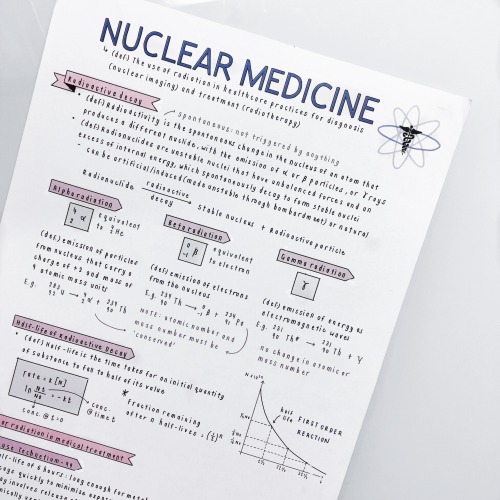
Handwritten with the iPad Pro and my trusty apple pencil 📚✨
More Posts from Swirlspill-study and Others
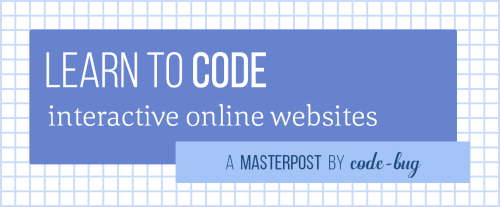
I was asked to make a masterpost on websites like Codecademy, so I’ve tried to compile a list of the best (and mostly free!!). In no particular order:
1. Codecademy [x]
I couldn’t not include Codecademy! Just in case you haven’t checked it out, it’s pretty neat. It has courses for learning languages and web developer skills.
Languages: Python, Ruby, Java, PHP, jQuery, JavaScript, HTML/CSS
Extras: Git, SQL, Command Line, AngularJS, Ruby on Rails
2. Code School [x]
This is pretty similar to Codecademy with the in-browser coding and such. It also has additional features like teaching videos. A good introduction to programming languages.
Languages: Python, Ruby, Javascript, HTML/CSS
Extra: iOS development with Objective-C or Swift, Git, SQL
3. Learnaroo [x]
Has tutorials followed by mini challenges based on the concepts you’ve just learnt! It also has some reference pages called “Learn x by Example”. Looks pretty good.
Languages: Python, Java, Ruby, HTML/CSS
Extra: Algorithms, Mathematics, + a bunch of premium membership stuff
4. Learn …
A set of related websites (see below) which have mini tutorials on language concepts followed by mini challenges, similar to Learnaroo.
Languages: Python, Java, C, C#, JavaScipt, PHP, Shell
5. Code Combat [x]
Basically, it turns learning to code into a game! As you move through the levels, new concepts are introduced, so the code you need to write to play the game gets harder.
Languages: Python, Java, JavaScript, CoffeeScript, Clojure, Lua
6. Codingame [x]
Similar idea to Code Combat, but a little more advanced.
Languages: Python, Java, Ruby, C, C++, C#, Haskell, VB … there’s actually loads it supports.
7. Code Wars [x]
This is more for ‘training’ with a language you already know. It offers plenty of practice through challenges, so it’s really good for improving your coding skills.
Languages: Python, Ruby, Java, C#, Haskell, JavaScript, CoffeeScript, Clojure
8. Coderbyte [x]
This offers some video tutorials and challenges for a few languages, plus special courses on specific algorithms and bootcamp/interview prep. You need a premium membership for quite a lot of things, though (e.g. I don’t think you can watch any of the videos with a free membership).
Languages: Python, Ruby, JavaScript
Extras: Algorithms, Bootcamp Prep, Job Interview Prep
9. Free Code Camp [x]
Mini tutorials followed by mini challenges. Has a number of courses on the languages below!
Languages: HTML/CSS, jQuery, JavaScript
Extras: Git, Algorithms, + a bunch of projects to complete
10. Programmr [x]
Has courses to learn various languages through doing little exercises/challenges in the browser, similar to previous examples. Also has ‘zones’ for more languages, where you can find challenges, example code and projects people have shared.
Languages: Python, Java, C++, C#, PHP, jQuery
11. CheckIO [x]
Only offers Python, but I still think it’s really great. You move from level to level, getting challenges which are gradually trickier. Learn by doing!
12. Rails for Zombies [x]
For people who already know a bit of Ruby, but nothing about Ruby on Rails! Each level begins with a short video followed by interactive challenges where you program Rails in the browser.
That’s all (for now!) Hope this is helpful! (ノ^∇^)ノ゚
tips for classics majors
from a second-year classics major. i’ve acquired these tips from my seven years of being a latin student and one year of ancient greek.
this post can be helpful for classics majors or people interested in self-teaching the classics. my concentration within my major is language and literature, so my tips will revolve around latin and greek. but if you’re studying any other ancient or modern language, my tips may still apply to you :)
~ make word associations. this is a BIG one. there are many nuances to this tip, so to start, i’ll explain why associations are useful, and then i’ll give several examples with different variations to cover the nuances.
since many english words, prefixes, and suffixes are derived from both latin and greek, take the time to figure out one or two english words that come from each new word you learn - these can either be normal everyday english words or pop culture references. (also, latin is semi-derived from greek, so you can make associations between the two languages as well). if you learn any kind of word association, it will make remembering the word so much easier.
examples:
pop culture: pane, which means bread in latin, is related to The Hunger Game’s city of Panem (panem is the accusative singular of pane). food insecurity is a big theme in The Hunger Games, therefore Panem is an appropriate name for the city that the series takes place in.
latin/greek to english: in latin, vicina is an adjective meaning “close, neighboring,” and its english derivative is “vicinity.” in greek, παιδευω means “i teach” and its english derivative is “pedagogy” - aka “a method/practice of teaching.” κριτης means “judge” and its english derivatives are “critic, criticize” and “critical.”
greek to latin to greek: sometimes it’s tricky to find out which word came from which language first, but usually it’s greek to latin. example: dea (“goddess” in latin) comes from θεα in greek.
think of those word associations as you learn your ancient language vocab. it will make recalling a word’s meaning so much easier.
anD DON’T FORGET TO LEARN THE GENDER AND THE GENITIVE SINGULAR OF EACH NOUN YOU LEARN BECAUSE IT HELPS WHEN DECLINING THE NOUN AND MATCHING IT UP WITH ADJECTIVES LATER ON OH MY GOD thiS IS SO IMPORTANT
~ make a concentrated effort to remember lots of different sentence constructions. there are so many i literally don’t remember them all and i’ve been doing this for years. the major categories i can think of off the top of my head are subordinate clauses, conditionals, and indirect discourse, and, more generally, learn the difference between the primary and secondary verb tenses.
~ every so often, brush up on as much grammar and vocab as you can. i’m saying this because i’ve procrastinated reviewing greek all summer and i barely remember anything beyond the basics :/ pls don’t tell my professor.
~ learn authors’ common themes and literary/rhetorical devices. for example: in the elegies of propertius, a roman poet, he used emptiness and unfulfilled wishes as motifs. learning words associated with emptiness and learning how to recognize the introduction of a wish made translating faster. i’ll confess though that i never really brushed up on the use of the optative subjunctive (the device used in wish statements), so i couldn’t recognize how exactly to translate certain sentence constructions. if i did review, it would have made translating in class a breeze. but hey, it was my first semester in college and i had no idea what i was doing at that level. please learn from my mistake!
~ learn the political, cultural, and historical context of each piece of literature you read. it will make the experience richer. if you know the context of a fiction piece, whether its poetry or prose, you will understand so much more about it. for example: the aeneid, vergil’s masterpiece (and arguably one of the best works in latin literature), is an ode to augustus. augustus commissioned vergil to write the aeneid and to make comparisons between himself and the protagonist aeneas. he wanted people to see him like they saw aeneas - kind, pious, loyal, determined, and in charge. knowing that bit of information makes many parts of the aeneid clearer. you can apply this tip to any piece of literature, no matter the language.
this is also important in terms of non-fiction writing. i took a class on roman letter writers and i would’ve been completely lost if my professor didn’t share anything historical with us. these letter writers typically vaguely referenced local gossip because messengers often read letters that were meant only for the recipient’s eyes. my professor filled in a lot of what was missing from the letters themselves.
~ have fun with it. learning languages is supposed to be fun!! of course languages enrich your mind and bring you into close contact with other cultures and ways of life, but it is supposed to be fun too. example: propertius once wrote a whole poem about knocking on his lover Cynthia’s closed door while she sat inside… and the door was a metaphor for her vagina…. which means propertius was h0rny on main!! and he published that in a poem!!1! for people all over rome to read!!!!
in terms of plays, my friend read one in latin by plautus about a prostitute who subverts the traditional roles associated with customer-prostitute relationships. he absolutely loved it bc the main character was a bad b!tch… and bc it was a comedic play.
there are lots of metaphors and jokes written within latin and greek literature, so don’t be afraid to laugh :) it makes learning that much more enjoyable
~ when reading a work of literature, ask yourself what this reveals about the author’s culture. (suicide tw: mentions of su*cide as a plot point in tragedy) this tip is kinda related to the cultural context one, but different in that it looks for culture within literature, rather than looking at literature as a product of culture. and like the previous tip, you can apply this to any piece of literature no matter the language it is in. it’s important to think deeply a piece of literature as well as enjoy it for what it is. example: i’ve read most of sophocles’ plays and i can tell you that the greeks were very comfortable with suicide as a plot point. while murder is also common, suicide is much more common no matter the tragedy. the fact that this theme occurs throughout so many plays tells me that greeks viewed suicide as a tragic occurrence that affects people deeply, but also as a common way to die. it raises questions: what percentage of deaths were attributed to suicide in ancient greece? was it viewed as honorable or shameful? etc.
and going back to vergil yet again (he’s my homeboy fr), when writing about dido and her people building the city of carthage, he specifically mentions that they are building the theaters first before almost any other building - and these few lines implicitly state that the arts were very important to carthage’s culture as a whole.
~ to sum it up: as a classics major, if you are intentional about learning the languages and truly engaged with the literature, the process will be that much more fun and you will gain that much more out of it. (<- and that sentence has a future-more-vivid construction by the way hehe)

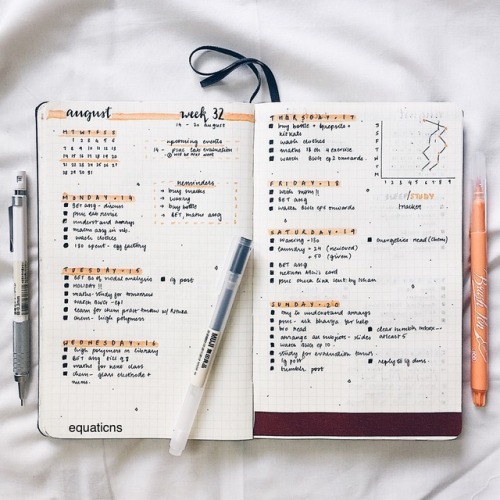
I really need to reduce my caffeine intake 😅
Taken from my studygram: @equaticnss ♡
Some reminders about Dr. King before tomorrow:
US government agencies were implicated in the wrongful death lawsuit in a civil trial in 1999 that his family fought for years and which was then buried by the justice department. The full transcripts of the trial and the following press conference are available on the King Center’s website. http://www.thekingcenter.org/assassination-conspiracy-trial
He spoke out against police brutality, capitalism, and war.
He believed that white moderates were and are the greatest threat to civil rights, moreso than any hate group.
He was arrested over 10 times.
He was considered a dangerous radical by the majority of white Americans.
He refused to condemn rioters, because “a riot is the language of the unheard.”
Any white person who voted for Trump who tries to use MLK or his words as a rhtetorical tactic to justify their bigotry and complain about people protesting can personally come to my apartment in the next 24 hours for an ass-kicking.
Hey you wonderful person! I just started studying bio and was wondering if you had any advice on thinking like a biologist?
hey you wonderful person as well and budding biologist!
Thinking like a biologist.. hmmm! never been asked something like this before, so this is great for me to think about it too! here are 7 “rules of biology” if you may, that i personally find truth in. it’s definitely not complete, and maybe not all 100% correct, since i am just one person. but it’s what i believe:
nothing in biology is absolute. this field is about as lawless as lawlessnes gets. for example: “smoking causes lung cancer”–yes, in some cases, but not everyone who smokes gets lung cancer, and not everyone who gets lung cancer smokes. because individuality exists in biology, it makes things complicated. that’s not to say there’s no rhyme or reason; it’s just that nothing happens in a vacuum/by itself so the answer to a lot things is: “well, it depends.” that’s why you’ll see a lot of words like “may”, “can”, “sometimes”, and “suggests” in biology.
science is a tool created by humans to understand nature. thus, science can never be 100% free from human bias and error. we try to be as unbiased and close to the truth as we can by using things like experimental controls and large sample sizes, but at the end of the day, sometimes science can still be flawed. and that’s ok! but we need to be able to edit past discoveries to what we know now. (and going off of that, I really don’t like that popular quote by neil degrasse tyson: “science is true whether you believe it or not”. that’s not accurate. what’s accurate is “NATURE is true” because humans doing science can be very very flawed)
going off of that, question everything. don’t accept something is true until the evidence is sound (ie. good study design, no false interpretation of data, reputable sources, etc). even if someone well respected in the field says something, doesn’t always mean it’s true. be your own advocate in finding out the facts.
sometimes the “outlier” can teach us the most. take cancer, for example. it’s definitely a non-normal state of health and being, but from it we learned so much about normal cellular and organ function. or how we’ve been able to discover some drug metabolism gene variations in certain populations because they didn’t respond well to a treatment during a clinical trial. a lot of knowledge in biology can come from studying what goes wrong or contrary to what we expected.
your personal ethics may be challenged at times. this is particularly applicable for things like: science vs religion, research on animal models, who and what gets funding priority (eg. a cancer drug with the potential for pharma companies to make billions vs a tropical disease that primarily affects poor communities?), the high cost of pharmaceuticals/health-care in general, open-access knowledge vs getting scooped, is it right to sequence every individual’s genome, etc. you will truly need to know yourself, especially your beliefs and your limits, to navigate these situations.
everything is connected, sometimes extending beyond the realm of biology. this is related to what can happen in a given situation is always “it depends”. everything affects everything; we–every living unit from microorganisms to cities–are all connected in some way. for example, recent research has shown certain populations of bacteria in our guts can alter our mental health, and it’s easy to see how that can change our day-to-day-life, which in turn can affect society in general.
never cease to be fascinated. the biology of nature is amazing, everything from the smallest virus to the largest ecosystem. no matter how jaded you may become later in your career, never let go of that childlike curiosity that first brought you to the field.
good luck and have fun on your adventure as a biologist :) and i’m always here if you need anything!

fiction is my addiction, and since it’s almost the summer, i thought i’d share some ways to get free ebooks or save some money to get more books so you could have something to get lost in over the summer. while this list has a lot of ya resources, there’s still something at the end if you’re looking for something more academic
free ebooks:
project gutenberg is always worth mentioning, because come on, it has 50,000 books in its collection. that’s a lot of books, and you can always catch up on the grimm’s fairy tales
riveted lit is run by the publisher simon and schuster, and they put books up that you can read for a limited time. if you’re looking for something more ya, this is a great place to start
bookbub has more discounted ebooks than free ones, but let’s care about the free ones. you get a daily email with a bunch of discounted or free books
free audiobooks:
sync is my absolute favorite thing. it gives away two free audiobooks, one clasic and one more contemporary, every week over the course of the summer. it starts on may 5 for 2016, and there’s an amazing lineup for anyone who loves to read young adult like i do (they’re going to have i’ll give you the sun, boy meets boy, and on the jellicoe road) and there’s even a nelson mandela’s history on week 12. it’s all free anyway, so why not?
audible allows you to get two free audiobooks in your trial, and if you always wanted to hear a celebrity narrate that classic you never wanted to pick up, you can find something to fulfill that.
hey, it’s project gutenberg again. not only do they have audiobooks, but they have audiobooks in other languages such as chinese, korean, spanish, and many more. if you wanted to test your comprehension of a foreign language in a new way, well, there you go
cheap books:
the book depository and wordery have free worldwide shipping for all you international people looking for that amazing book that your bookstore refuses to stock
if you live in the uk, the book people has some really amazing deals
if you live in the us, there’s book outlet. the prices are phenomenal and i want to cry because they don’t ship cheaply to me
saving money
if you buy something using ebates, you can get a rebate. buying something from book outlet? get a 10% rebate while you’re at it. it even has rebates for university bookstores like the stanford university bookstore. also, for your first time, you can get $10 back along with the original rebate. plus, it’s awesome how it’s for more than just books, because you can get a rebate for clothing stores or ebay. you can look at the full list of stores here.
if you have any questions, you could always drop by and ask. i hope these help you to get something to read!
Where to save up to $1600.00 in college supplies.
After the Stafford loan interest rate hike I researched further into ways to save for school and found some pages that would cover most of your basic college needs past textbooks. If you find cheaper things let me know and I’ll show those off too. If you need help researching a specific item feel free to lmk, I’m willing to help you out in my spare time.
Textbooks
Scientific Calculators
Tablets and Computers
Headphones from $9.99
Notebooks and Writing Pads
Pack of Highlighters from a dollar
Towel Sets, Mattress pads, and Desk chairs
Dining Essentials for a Dorm or small Apartment
Backpacks and laptop carriers
Cell Phone Accessories
External Hard Drives
Printers and Ink
Mini-Fridge
Best of luck!

I don’t know about you guys but I am psyched to get an education, woo. This year is a hella important year for me because if I don’t finish this school year with five As then I am a dead man walking, you get me? So this started off as a collection to help me get those fabulous As but I thought, what the hell? I’ll share this perfection with everyone else because sharing is caring. Anyways, down to the nitty gritty
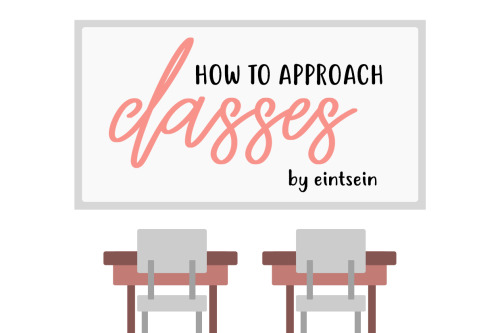
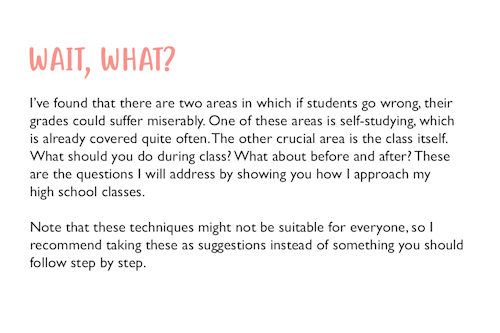
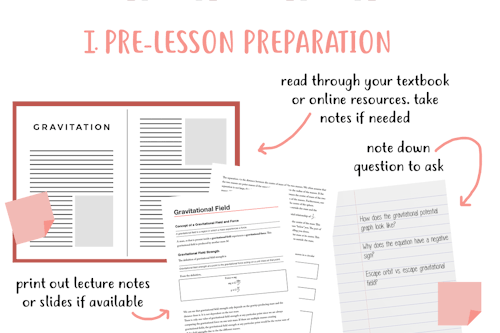
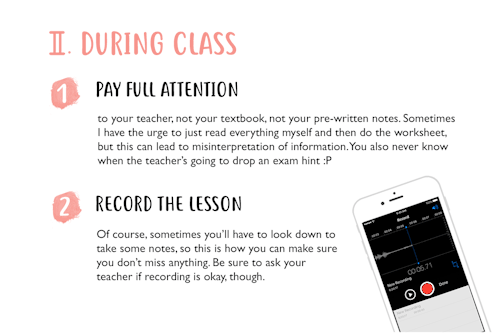
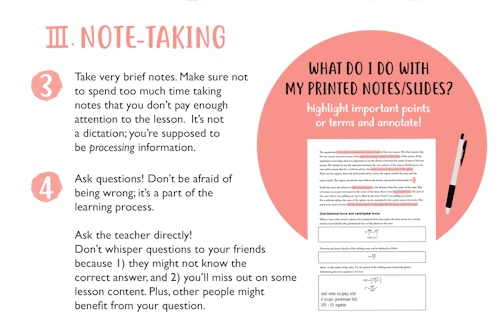
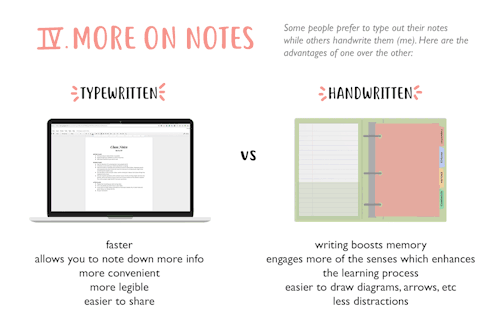
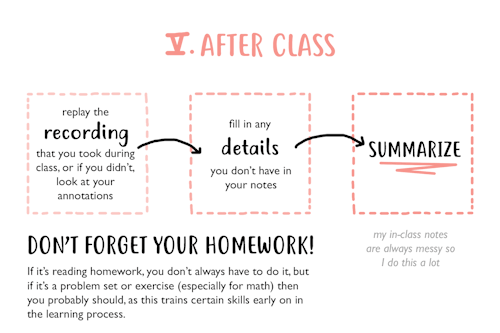
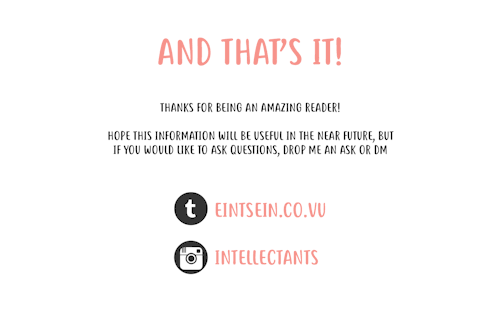
HOW TO APPROACH CLASSES A guide to getting the most out of your classes and lectures
By Eintsein
Design inspired by this post by @journalsanctuary
-
 university27 reblogged this · 11 months ago
university27 reblogged this · 11 months ago -
 evefromthenorth liked this · 1 year ago
evefromthenorth liked this · 1 year ago -
 saguntrieshealth liked this · 1 year ago
saguntrieshealth liked this · 1 year ago -
 porraelmo liked this · 1 year ago
porraelmo liked this · 1 year ago -
 dimpledangel liked this · 1 year ago
dimpledangel liked this · 1 year ago -
 hadesdipheolisk liked this · 2 years ago
hadesdipheolisk liked this · 2 years ago -
 ekka9131-akshay liked this · 2 years ago
ekka9131-akshay liked this · 2 years ago -
 enderfae liked this · 2 years ago
enderfae liked this · 2 years ago -
 studying-late-blog reblogged this · 2 years ago
studying-late-blog reblogged this · 2 years ago -
 serenitysva liked this · 3 years ago
serenitysva liked this · 3 years ago -
 liebstea liked this · 3 years ago
liebstea liked this · 3 years ago -
 crystallineprisms-blog reblogged this · 3 years ago
crystallineprisms-blog reblogged this · 3 years ago -
 crystallineprisms-blog liked this · 3 years ago
crystallineprisms-blog liked this · 3 years ago -
 elizavalentine liked this · 3 years ago
elizavalentine liked this · 3 years ago -
 heyeducateyourself reblogged this · 3 years ago
heyeducateyourself reblogged this · 3 years ago -
 brenda-designs liked this · 3 years ago
brenda-designs liked this · 3 years ago -
 lackingadeepusername liked this · 3 years ago
lackingadeepusername liked this · 3 years ago -
 maeve-studies reblogged this · 3 years ago
maeve-studies reblogged this · 3 years ago -
 raelitybites reblogged this · 3 years ago
raelitybites reblogged this · 3 years ago -
 generalnightmareclown liked this · 3 years ago
generalnightmareclown liked this · 3 years ago -
 sparks-world liked this · 3 years ago
sparks-world liked this · 3 years ago -
 swaveystudies reblogged this · 3 years ago
swaveystudies reblogged this · 3 years ago -
 genuinedonnie liked this · 3 years ago
genuinedonnie liked this · 3 years ago -
 thebackpackerinside reblogged this · 4 years ago
thebackpackerinside reblogged this · 4 years ago -
 emily-reads-books reblogged this · 4 years ago
emily-reads-books reblogged this · 4 years ago -
 emily-reads-books liked this · 4 years ago
emily-reads-books liked this · 4 years ago -
 nopeseydoodle liked this · 4 years ago
nopeseydoodle liked this · 4 years ago -
 yogurtbowl liked this · 4 years ago
yogurtbowl liked this · 4 years ago -
 sleepyandconfusedgf liked this · 4 years ago
sleepyandconfusedgf liked this · 4 years ago -
 dubestripes liked this · 4 years ago
dubestripes liked this · 4 years ago -
 herefortommo liked this · 4 years ago
herefortommo liked this · 4 years ago -
 bujoign reblogged this · 4 years ago
bujoign reblogged this · 4 years ago -
 melancholic-academia liked this · 4 years ago
melancholic-academia liked this · 4 years ago
a study blog for collected references, advice, and inspiration
267 posts
